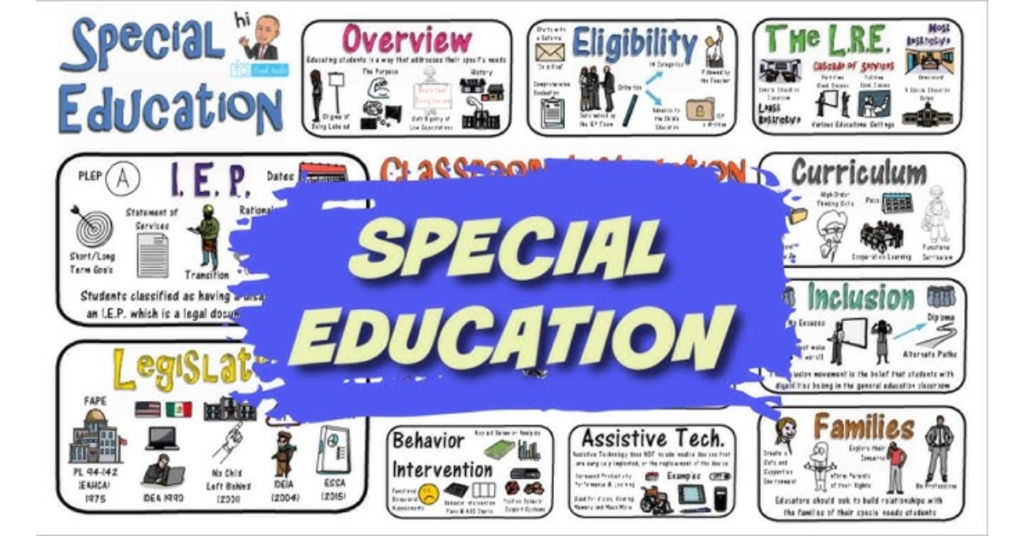Special education is a crucial aspect of the educational system, ensuring that students with disabilities receive the necessary support and resources to thrive. University special education programs are instrumental in training educators who are prepared to meet the diverse needs of these students. This article delves into the significance, structure, career opportunities, and current challenges facing university special education programs.

The Significance of Special Education
What is Special Education?
Special education encompasses a wide range of services and teaching strategies designed to support students with disabilities. These disabilities can include learning disabilities, emotional disturbances, and physical impairments. The primary goal of special education is to provide equitable access to education and foster the academic, social, and emotional development of all students.
The Role of Special Education Teachers
Educators trained in special education play a vital role in advocating for their students. They develop and implement Individualized Education Programs (IEPs) tailored to each student’s unique needs, ensuring they receive appropriate support and accommodations. Additionally, these teachers create inclusive classroom environments where all students can engage, learn, and grow together.
Structure of University Special Education Programs
Degree Pathways Available
University special education programs typically offer various degree options to prepare future educators. These include:
- Bachelor’s Degrees: Foundational programs that introduce students to the principles and practices of special education.
- Master’s Degrees: Advanced programs that allow students to specialize in specific areas, such as behavior analysis or autism spectrum disorders, equipping them with advanced skills and knowledge.
- Doctoral Degrees: Designed for those interested in research or academic leadership, doctoral programs involve extensive study and original research in the field of special education.
Key Curriculum Components
The curriculum of special education programs is designed to provide students with a comprehensive understanding of the field. Key components often include:
- Foundational Knowledge: Courses covering the history, legislation, and philosophical foundations of special education.
- Assessment and Evaluation: Training in various assessment techniques enables educators to evaluate the needs of students with disabilities accurately.
- Instructional Strategies: Coursework on effective teaching methods prepares future educators to adapt their instruction to meet the diverse needs of their students.
- Behavior Management: Training in behavior management techniques helps educators create positive and inclusive learning environments.
- Practical Experience: Field placements or internships allow students to apply their knowledge in real classroom settings, gaining valuable hands-on experience.
Accreditation Standards
Accreditation is critical in maintaining the quality of university special education programs. Programs accredited by organizations such as the Council for the Accreditation of Educator Preparation (CAEP) adhere to stringent standards, ensuring that they deliver high-quality education and prepare graduates for successful careers in the field.
Career Opportunities for Graduates
Varied Career Paths
Graduates of university special education programs can pursue numerous fulfilling career opportunities, including:
- Special Education Teacher: Directly working with students in various educational settings, including mainstream and specialized schools.
- Resource Teacher: Collaborating with general education teachers to support students with special needs and implement effective teaching strategies.
- Educational Consultant: Advising schools on best practices for inclusive education and developing policies to support students with disabilities.
- Behavior Analyst: Focusing on students with challenging behaviors and developing intervention plans to promote positive outcomes.
- Administrator: Taking on leadership roles, such as special education coordinators or district-level administrators, overseeing special education programs and ensuring compliance with regulations.
Impact on Communities
The effects of special education programs extend beyond individual students; they play a vital role in fostering inclusive communities. By advocating for equal opportunities and promoting understanding of diverse abilities, these programs help create environments that support all learners.
Current Trends and Challenges in Special Education
The Push for Inclusion
One significant trend in special education is the emphasis on inclusion, where students with disabilities learn alongside their typically developing peers. While this approach promotes social integration, it also presents challenges, such as the need for educators to be adequately prepared to address diverse needs in a single classroom.
Technological Advancements
Advancements in technology are revolutionizing the field of special education. Assistive technologies, such as communication devices and adaptive software, empower students with disabilities to engage more fully in their education. As a result, universities are increasingly integrating technology training into their special education programs, ensuring future educators are well-equipped to utilize these tools effectively.
Addressing Teacher Shortages
Despite the critical need for special education teachers, many regions face significant shortages. This challenge is exacerbated by the emotional demands of the profession and insufficient support for educators. To tackle this issue, universities are actively promoting the benefits of a career in special education and providing incentives to attract and retain qualified professionals.
Conclusion
University special education programs are essential in shaping the future of education for students with disabilities. By equipping educators with the skills and knowledge necessary to support diverse learners, these programs empower them to make a meaningful impact in their classrooms and communities. As the educational landscape continues to evolve, it is crucial for special education programs to adapt and innovate, ensuring that all students have the opportunity to succeed. Investing in these programs is an investment in a more inclusive and equitable society, benefiting individuals and communities alike.